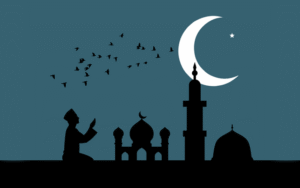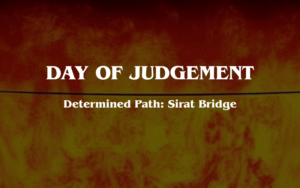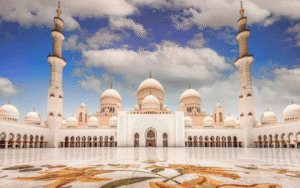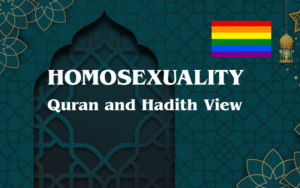What Does the Quran Say About Alcohol and Drugs in Islam
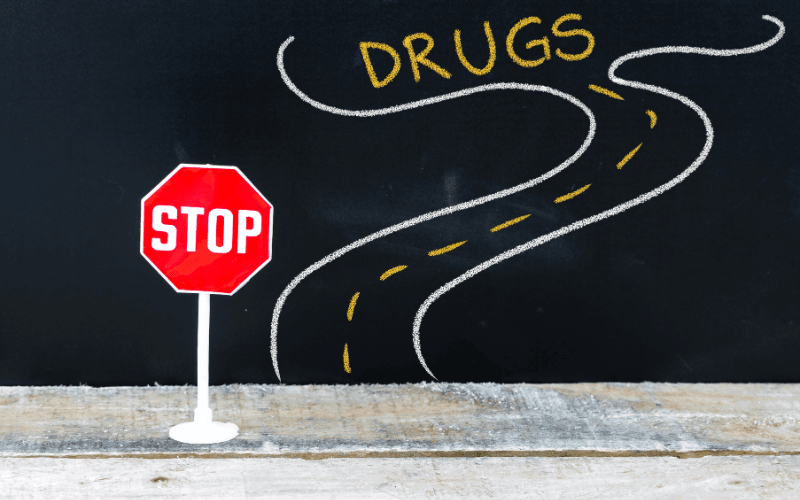
Modern society faces a devastating crisis in the plague of addiction. Consequently, understanding the perspective on drugs in Islam is more critical than ever. In its deadly grip, millions of lives are cut short, countless families are shattered, and the very fabric of social and national security is threatened. From theft and robbery to domestic violence and terrorism, substance abuse acts as a primary catalyst for the majority of crimes plaguing our communities.
Fourteen centuries ago, Islam took a clear, firm, and timeless stand against this destructive menace. As a complete code of life, Islam aims to protect humanity from all forms of harm. For this reason, it has declared all types of intoxicants completely Haram, or forbidden.
In this article, we will delve into the devastating reality of addiction, the wisdom behind its prohibition, and the path to freedom from this curse, all in the light of the Holy Quran, the Hadith, and Islam’s foundational teachings.
Defining Intoxicants: The Islamic Ruling on Alcohol and Khamr
In Islamic terminology, the word for intoxicants is ‘Khamr’ (خمر). The literal meaning of this Arabic word is “to veil” or “to cloud.” Because these substances cloud a person’s intellect and judgment, stripping them of their normal decision-making abilities, they are called Khamr.
The Prophet Muhammad (ﷺ) provided a comprehensive and clear definition. He said:
كُلُّ مُسْكِرٍ خَمْرٌ وَ كُلُّ خْمْرٍ حَرَامٌ
“Every intoxicant is Khamr, and all Khamr is forbidden (Haram).”
(Sahih Muslim, Hadith: 2003)
Therefore, from an Islamic perspective, the prohibition is not limited to just wine or alcohol. In fact, anything that impairs the mind, clouds the intellect, and causes intoxication falls under the category of Khamr and is absolutely forbidden. This includes wine, marijuana, opium, heroin, methamphetamines, cocaine, or any other chemical substance. The comprehensive prohibition of drugs in Islam is rooted in this principle.
The Prophet (ﷺ) further clarified,
“Khamr is that which clouds the intellect.”
(Sahih Bukhari, Hadith: 5585; Sahih Muslim, Hadith: 3007)
An Arab poet perfectly captured this characteristic of wine:
شَرِبْتُ الْخَمْرَ حَتَّى ضَلَّ عَقْلِىْ + كَذَاكَ الْخَمْرُ تَفْعَلُ بِالْعُقُوْلِ
“I drank wine until my mind was lost. Thus does wine play games with the intellect.”
The Quran’s Wisdom: What Does the Quran Say About Alcohol?
In pre-Islamic Arabian society, alcohol consumption was a deeply ingrained habit and an inseparable part of their culture. For this reason, Allah, in His infinite wisdom, did not declare it forbidden in a single, abrupt command. Instead, He implemented a phased approach, preparing people psychologically to abandon a centuries-old practice, which made the transition manageable. This gradual prohibition was a revolutionary and psychologically sound method.
Stage 1: Sparking Thought and Reflection In a verse revealed in Makkah, Surah An-Nahl, Ayah 67, Allah mentions dates and grapes, noting that people derive both intoxicants and good provision from them. While not a direct prohibition, it created a subtle distinction, planting a seed of contemplation about alcohol in the Quran.
Stage 2: Comparing Sin and Benefit Later, after the migration to Madinah, when people asked about wine and gambling, Allah revealed:
يَسْأَلُونَكَ عَنِ الْخَمْرِ وَالْمَيْسِرِ ۖ قُلْ فِيهِمَا إِثْمٌ كَبِيرٌ وَمَنَافِعُ لِلنَّاسِ وَإِثْمُهُمَا أَكْبَرُ مِن نَّفْعِهِمَا
“They ask you about wine and gambling. Say, ‘In them is great sin and [yet, some] benefit for people. But their sin is greater than their benefit.’”
(Quran, Surah Al-Baqarah: 219)
This verse acknowledged worldly benefits (like commerce) but emphatically stated that the sin and harm were far greater, thus preparing believers’ hearts to reject it.
Stage 3: Prohibition During Prayer Times Next, Allah revealed a command forbidding Muslims from performing the most important act of worship—Salat (prayer)—while intoxicated.
يَا أَيُّهَا الَّذِينَ آمَنُوا لَا تَقْرَبُوا الصَّلَاةَ وَأَنتُمْ سُكَارَىٰ حَتَّىٰ تَعْلَمُوا مَا تَقُولُونَ
“O you who have believed, do not approach prayer while you are intoxicated until you know what you are saying.”
(Quran, Surah An-Nisa: 43)
Since Muslims pray five times daily, this ruling was a highly effective measure in keeping them away from intoxicants for extended periods.
Stage 4: The Final and Complete Prohibition Finally, when the Muslim community was ready, Allah revealed the definitive verses that banned all intoxicants, answering the question of why do Muslims not drink alcohol for all time:
يَا أَيُّهَا الَّذِينَ آمَنُوا إِنَّمَا الْخَمْرُ وَالْمَيْسِرُ وَالْأَنصَابُ وَالْأَزْلَامُ رِجْسٌ مِّنْ عَمَلِ الشَّيْطَانِ فَاجْتَنِبُوهُ لَعَلَّكُمْ تُفْلِحُونَ – إِنَّمَا يُرِيدُ الشَّيْطَانُ أَن يُوقِعَ بَيْنَكُمُ الْعَدَاوَةَ وَالْبَغْضَاءَ فِي الْخَمْرِ وَالْمَيْسِرِ وَيَصُدَّكُمْ عَن ذِكْرِ اللَّهِ وَعَنِ الصَّلَاةِ ۖ فَهَلْ أَنتُم مُّنتَهُونَ
“O you who have believed, indeed, intoxicants, gambling… are but defilement from the work of Satan, so avoid it that you may be successful. Satan only wants to cause… animosity and hatred through intoxicants and gambling and to avert you from the remembrance of Allah and from prayer. So will you not desist?”
(Quran, Surah Al-Ma’idah: 90-91)
The Companions’ response was immediate. The streets of Madinah flowed with wine as everyone poured out and destroyed whatever they possessed—a powerful testament to their obedience.
Severe Warnings: Exploring a Hadith About Alcohol for Deeper Insight
The Prophet Muhammad (ﷺ) warned his followers about the dire consequences of intoxication in numerous hadiths, further solidifying the stance on drugs in Islam.
- The Key to All Evil: The Prophet (ﷺ) said, “Do not drink wine, for it is the key to all evil.” (Sunan Ibn Majah, Hadith: 3371)
- The Mother of All Vices: Furthermore, he stated, “Abstain from wine, for verily it is the mother of all abominations (Umm al-Khaba’ith).” (Sunan An-Nasa’i, Hadith: 5667)
- Faith and Intoxication Cannot Coexist: One of the most severe warnings is, “When a person drinks alcohol, he is not a believer at the time of drinking.” (Sahih al-Bukhari, Hadith: 5578)
- Denied Entry to Paradise: He also said, “The habitual drinker of wine will not enter Paradise.” (Sunan Ibn Majah, Hadith: 3376)
- Forty Days of Worship Rejected: A particularly stark hadith about alcohol states, “Whoever drinks an intoxicant, Allah will not accept his prayer for forty days. If he dies in this state, he will enter the Hellfire… If he drinks it a fourth time, Allah will make him drink from ‘Radaghatul Khabal’…” When asked, he explained this was “the discharge of the people of Hellfire (the mixture of their blood and pus).” (Sunan al-Tirmidhi, Hadith: 1862)
- A Curse on Ten Individuals: The Messenger of Allah (ﷺ) cursed ten people associated with alcohol, including the one who makes it, serves it, sells it, buys it, and carries it. (Sunan al-Tirmidhi, Hadith: 1295)
Destructive Harms: Understanding the Stance on Drugs in Islam
Islam designs every ruling for the well-being of humanity. Therefore, the prohibition of intoxicants is rooted in protecting us from numerous spiritual, physical, mental, social, and economic harms, explaining the clear Islamic ruling on alcohol.
- Spiritual Damage: First, intoxicants make a person heedless of Allah and prayer. They harden the heart and open the door to Satan’s temptations. This is a primary reason why Muslims do not drink alcohol.
- Physical Damage: In addition, modern science has proven that substance abuse severely damages the brain, heart, liver, and kidneys, leading to diseases like cirrhosis and cancer.
- Mental Damage: Intoxicants rob a person of their greatest asset—their intellect. Consequently, they lose the ability to distinguish between right and wrong.
- Social Collapse: Moreover, addiction fuels crime rates. There is a direct link between substance abuse and domestic conflict, divorce, theft, and violence.
- Economic Ruin: Finally, the vast sums of money spent on drugs in Islam are not just a waste; they can devastate a family’s finances and cripple an economy.
The Path to Recovery: An Islamic Guide to Overcoming Addiction
Protecting individuals and society from this terrible affliction requires a coordinated effort. Fortunately, Islam provides a powerful framework for recovery.
- Strong Willpower and Repentance (Tawbah): First and foremost, the addicted individual must possess a sincere desire and strong will to change. They must turn to Allah in sincere repentance (Tawbah), vowing to leave this path for good.
- Following Islamic Teachings and Rituals: Performing the five daily prayers is one of the most powerful tools for staying away from sin. Allah says, “Indeed, prayer prohibits immorality and wrongdoing.” (Quran, Surah Al-Ankabut: 45). Likewise, fasting, reciting the Quran, and remembering Allah purify the heart.
- Family and Community Support: The family should be the first line of defense. Children must receive religious and moral education from a young age. Additionally, community leaders, Imams, and conscious citizens must unite to build a social front against drugs.
- Raising Awareness: We must raise public awareness about the devastating consequences of addiction. Educational institutions, the media, and mosque pulpits should all be used to campaign against it.
- The Role of Experts: Finally, doctors can educate people about the harmful effects of addiction and provide proper medical treatment. In parallel, scholars can explain its severity from an Islamic perspective, guiding people back to the right path.
A Final Call: The Path to Freedom
Addiction is a terrifying curse upon humanity. It is a sin that gives birth to countless other sins. The firm stance that Islam took against it fourteen hundred years ago remains a tremendous mercy for all humankind. To build a healthy, beautiful, and safe society, we must fully embrace this divine guidance.
May Allah protect us all, our families, and our communities from the curse of this destructive addiction. Ameen.
Frequently Asked Questions
Why are drugs and alcohol forbidden in Islam?
Drugs in Islam are forbidden because they are considered 'Khamr,' a substance that clouds the intellect and leads to evil. Islam prohibits intoxicants to protect a person's faith, mind, health, and social well-being from harm.
What does the Quran say about alcohol?
The Quran addresses alcohol in stages, ultimately declaring it a grave sin and a "defilement from the work of Satan." In Surah Al-Ma'idah (5:90-91), it strictly forbids all intoxicants, stating that they create animosity and hatred and turn people away from the remembrance of God and prayer. Therefore, believers are commanded to avoid them completely.
Why do Muslims not drink alcohol?
Muslims do not drink alcohol as an act of obedience to a direct command from God in the Quran. It is forbidden (Haram) because it clouds the intellect, harms the body, leads to social and spiritual decay, and is considered a tool of Satan to create conflict and distract people from their faith.
